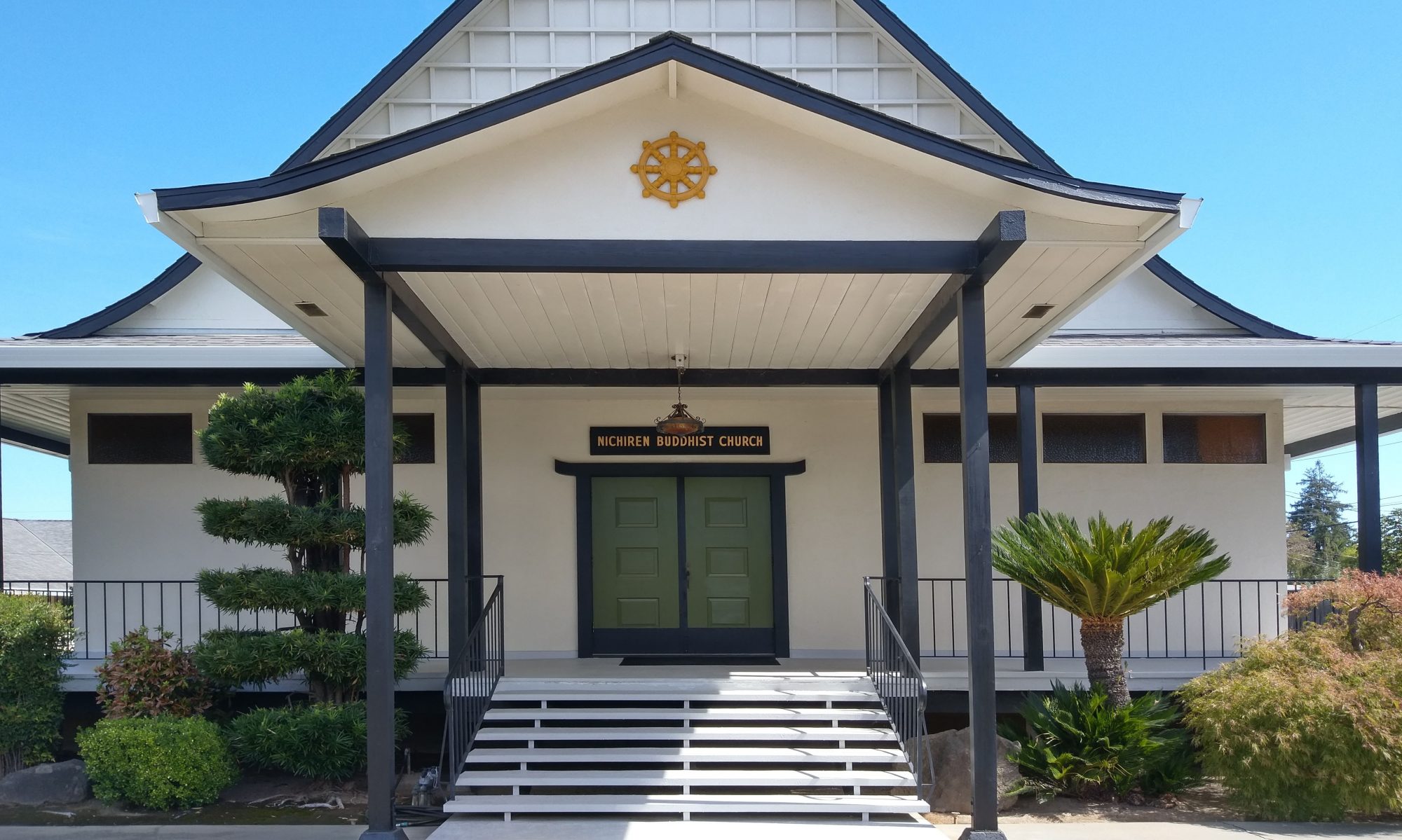The view of Buddhism in the Nikkei community has gradually changed in the last several decades or so, sometimes even mirroring the views of the current generation in Japan. One main example includes how many associate Buddhism with solely memorial services and funerals. In essence, Buddhism has mainly become a necessity only for those who have passed away.
Many Buddhist traditions, including our own, have emphasized the importance of continuing to honor and remember the lives of those that have passed. Our founder, Nichiren Shonin, repeatedly claimed the importance of offering our prayers to the deceased. However, more important for him, was the use of prayer to benefit those currently living in this world of humanly desires, to ultimately create a peaceful society. His education would lead him to recognize the significance of the Lotus Sutra in accomplishing this goal.
Nichiren Shonin entered the monastery at age 12 and from ages 16 to 20, he studied Buddhism in Kamakura, the center of both Japanese politics and economics at the time. The knowledge he acquired there remained insufficient for him, and from ages 21 to 30, he educated himself further at Mount. Hiei. Among his new discoveries included both Tendai and Shingon esoteric Buddhism. He became convinced that he too should practice esoteric Buddhism to accomplish his goals of bringing peace to the world. Thus, both traditions created the base of Nichiren Shu esoteric Buddhism (currently recognized in the form of kaji kito (“ritual prayer”)). It is important to note that Tendai and Shingon esoteric Buddhist practices differ from the current Nichiren Shu kaji kito practices in several ways. However, we see several aspects of Tendai and Shingon esoteric practices incorporated into the Nichiren Shu tradition that have evolved throughout the centuries since their initial incorporation.
About three years ago, I had an opportunity to visit Mount. Koya, the center of Shingon Buddhism, as well as Mount. Hiei to further delve into Nichiren Shonin’s emphasis of prayer and esoteric Buddhism. I remember that at Mount. Hiei I repeatedly saw the words “忘己利他” (mou ko ri ta) written all over the place, including banners and displays of children’s calligraphy. These words are those of Saicho, the founder of Tendai Buddhism, and the first person in Japan to accept the importance of the Lotus Sutra before Nichiren Shonin. Without knowing the meaning, one may incorrectly read this as “mou korita”, combining the last three characters as one word. Upon just hearing the term (and without seeing the characters) “mou korita”, many Japanese would incorrectly interpret this as a common Japanese expression, which literally translates to, “I have learned from my bad experience and I can’t take this anymore”. The correct reading of the characters leads to the correct translation, which is to put others before yourself in your attempts to provide them with happiness and benefits through your help. This remains above all, one of the core teachings in Buddhism and an important characteristic of Bodhisattvas, who return to the world of humanly desires to help others achieve a higher realm. It is not enough that you are happy—others must be happy as well.
Nichiren Shonin, the reincarnation of Jogyo Bodhisattva, propagated the Lotus Sutra despite the criticism he faced from both the public and Japanese government. His several visits to the government to promote the Lotus Sutra as well as his public denouncement of nonbelievers of the Lotus Sutra led him to face many persecutions and obstacles throughout his life. The government tried offering him a position as the head minister of a huge temple (considered a huge honor for a priest at the time) in exchange for his promise that he would stop his “public disturbance”. Yet, Nichiren Shonin refused all offers and remained adamant in his goal of helping others obtain happiness by preaching about the benefits acquired from Buddha’s teachings, more importantly, the Lotus Sutra. This notion of putting others before oneself is something that we all admire and even see examples of in the news. However, more often than not, we also hear of the opposite situation as well. Two years ago, there were shipwrecks in both Korea and Italy around the same time. In both situations, the captain removed his captain uniform and abandoned both the crew and the ship to escape and save his own life. In Korea, 304 high school students died at sea. Unfortunately, it is unavoidable that in this age of mappo, there will be those who think only about themselves.
My hope is that during your Buddhist practice, you will recall the words “mou ko ri ta”. Nichiren Shonin tried to help others by offering the Lotus Sutra as a type of life saving rope that a person could hold onto from which the Buddha would pull them up from this world of mappo. So as believers of Nichiren Shu Buddhism, I want you to see the odaimoku also as a rope that you yourself could offer to others to save them from this world of humanly desires.
Ven. Kenjo lgarashi
May 2015
